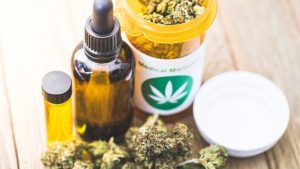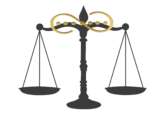 Cannabis versus the law: Is it really just a plant?
Cannabis versus the law: Is it really just a plant?
Jamaica has long been known for the cultivation of cannabis, and considered as producing a high-quality plant. For the members of the public who see value in the use of cannabis, a big concern has been Jamaica’s alleged failure to make the most of the local ability to produce the plant, and create a new industry that they are sure could thrive.
What’s the issue?
Jamaica is not the only country that has found cause for concern with the use of cannabis. Like many other countries, Jamaica observes the United Nations’ drug control regime which places strict controls on the use of cannabis. The UN’s drug regime places cannabis in the same category as heroin, fentanyl, and cocaine. The drug regime generally allows certain mind-altering substances such as cannabis to be used for medical, and scientific purposes. This means that recreational use is not permitted.
Some of the foundational laws under the UN’s drug regime are over 60 years old. Previous interpretation of those laws resulted in the recreational use of cannabis being a crime. More modern interpretations of the laws have caused many countries, including Jamaica to decriminalize the use of cannabis for recreational purposes. This means, there is a particular amount of cannabis you can be found with, in Jamaica, for which you will generally not be imprisoned but will be required to pay a fine.
Is it really just a plant?
Cannabis is certainly not an ordinary plant.
Scientific research on cannabis has evolved and caused an increased appreciation for its medical, therapeutic value. This increased appreciation has led to some countries voting in favour of the removal of some of the controls under the UN’s drug regime.
You may have heard about cannabis having various strains. The two main types of cannabis plant are cannabis sativa, and cannabis indica. They are biochemically distinct and also have their own strains.
The cannabis sativa plant is associated with ‘feeling high’; producing a mental euphoria, while the cannabis indica is known for relaxing or soothing the body and is used for medical purposes such as pain relief.
Oftentimes in everyday conversation, persons seek to classify cannabis plants based on height, branching, or leaf features. However, the only proper way to classify a plant would be to conduct a biological assay. Why? There are over 500 different chemical substances in the plant.
The biological assay is particularly important with the prevalence of interbreeding, or hybridization. This biological assay will reveal the concentration of cannabinoid and terpenoid in the plant.
What are those?
Cannabinoid collectively refers to the chemical substances found in the plant.
The two main types of cannabinoids are THC and CBD. These two abbreviations have been circulating often these days including on product packaging but what are they?
CBD, this stands for cannabidiol and refers to the non-intoxicating component of cannabis. It is often promoted for the control of anxiety, depression, and as a non-psychoactive.
THC, this refers to tetrahydrocannabinol. This is the psychoactive component of cannabis.
Terpenoids are the aromatic substances found in the plant.
Ganja versus Hemp
Ganja, which usually produces high potency THC, is defined under Jamaican law to include all of the cannabis sativa plant from which the resin has not been removed but does not include medicinal preparations from the plant, and does not include hemp.
Jamaica has a very generous definition of hemp. Under Jamaican law hemp is defined as the cannabis sativa plant or any part thereof with 1% or less THC. In other countries hemp is defined as having 0.3% THC or less, and anything above 0.3% THC is classified as marijuana. This matters because in some countries hemp may be used for making food.
Cannabis Licensing Authority (CLA)
In keeping with the current global appreciation for cannabis, and the international legal framework, Jamaica established the CLA. Through the CLA a person may obtain:
- a Cultivator’s Licence, which is usually valid for one year;
- a Processing Licence, which is usually valid for 3 years;
- a Transport Licence which is usually valid for 3 years;
- a Retail Licence which is usually valid for 3 years.
Generally, the CLA engages in detailed due diligence, and each license has its own special requirements.
Other permits & authorizations
If you are at least 18 years old and a Rastafarian you may seek permission to cultivate ganja for religious purposes. Approved organizations may seek permission to cultivate or import ganja for scientific research.
Whether you use cannabis or its by products should be based on the laws of the country you are using it in, to determine the legality of its use. If it can be used legally you should find out whether the permitted use is medicinal and or recreational and where it can be used.
Until next time, stay safe.
Disclaimer by the author: Nothing in this article is to be taken as legal advice. You should consult an attorney regarding your specific case. All liability with respect to actions taken or not taken based on the contents of this article are hereby expressly disclaimed.
